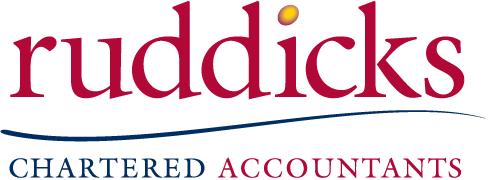Changes for foreign residents who own Australian residential property
Removal of main residence exemption for foreign residents
As we have written previously, in last year’s Federal Budget the Government announced its intention to amend the Capital Gains Tax (CGT) rules to remove access to the main residence exemption for foreign residents. Please note that “foreign resident” is a term defined in reference to tax law and in many cases will include Australians living and working overseas.
Since our last article on this issue, the Government has introduced draft legislation into Parliament, however this widely publicised measure is currently before the Senate and has not yet been passed into law. A surprising and important aspect of the proposed legislation is that there will be no apportionment of the main residence exemption to recognise any part of the ownership period during which the property owner was a resident of Australia.
Broadly, your home ceases to be your main residence when you stop living in it, however you may choose to continue treating it as your main residence in the following circumstances:
- For six years while it is being rented out (including on Airbnb type platforms); or
- For an unlimited amount of time if it is left vacant or you allow friends or family to live in it rent-free.
Under the proposed legislation, the above rule about absences will be irrelevant if you sell your property while you are a foreign tax resident.
Effectively, even if you lived in your Australian home for 20 years and then moved overseas and subsequently sold the property, you would (if the legislation is passed in its current form), be assessed on the full amount of capital gain accrued since the time you acquired your former home.
Additionally, as a foreign resident your CGT discount would not be the full 50% but would be reduced based on the proportion of time you have been a foreign resident during the period of ownership of the property.
And finally, your income tax liability would be calculated using the foreign resident tax rates which are higher than resident tax rates, with no tax-free threshold (32.5% tax rate applies to the first $87,000 of taxable income, and increases to 37% for income between $87,000 and $180,000, and up to 45% for income above $180,000).
There is some proposed grandfathering for properties acquired on or before 9 May 2017 and the new rules will not apply to disposals of these properties until after 30 June 2019.
If you are a foreign resident for tax purposes (or are considering moving overseas, e.g. for a work assignment) and you acquired your home on or before 9 May 2017, then you may want to consider selling your main residence before 30 June 2019 in order to benefit from the CGT main residence exemption grandfathering concession. You need to be aware of the potentially significant tax implications that would arise if you were to sell their former home while you are a foreign resident.
We will keep you updated as further information become available in relation to this proposed measure. In the meantime, if you believe you would be affected by this measure, you should seek specific taxation advice in order to assess the impact of this change on your personal tax situation and to take relevant actions where appropriate.
Vacancy fees for foreign acquisitions of residential land
This measure has been legislated and is effective from 7:30 pm on 9 May 2017. Under this new regime, foreign owners of Australian residential property will be liable for an annual vacancy fee where the property is not occupied by any person and/or is not genuinely available on the rental market for at least 183 days during a year. There will also be additional annual reporting required to the Commissioner of Taxation in relation to each dwelling, even if there is no liability to the vacancy fee.
Please note that this measure applies to “foreign persons” (which can include companies and trusts) who are not “ordinarily present in Australia”, as defined under the Foreign Acquisitions and Takeovers Act. This definition is different to the concept of residency for income tax purposes. Importantly, the vacancy fee does not apply to Australian citizens, even if they do not reside in Australia.
Should you wish to obtain further details in relation to this measure, please contact your Ruddicks adviser.
DISCLAIMER:
Liability limited by a scheme approved under Professional Standards Legislation.
The content of this newsletter is general in nature. It does not constitute specific advice and readers are encouraged to consult their Ruddicks adviser on any matters of interest. Ruddicks accepts no liability for errors or omissions, or for any loss or damage suffered as a result of any person acting without such advice. This information is current as at 1 June 2018, and was published around that time. Ruddicks particularly accepts no obligation or responsibility for updating this publication for events, including changes to the law, the Australian Taxation Office’s interpretation of the law, or Government announcements arising after that time.
Any advice provided is not ‘financial product advice’ as defined by the Corporations Act. Ruddicks is not licensed to provide financial product advice and taxation is only one of the matters that you need to consider when making a decision on a financial product. You should consider seeking advice from an Australian Financial Services licensee before making any decisions in relation to a financial product. © Ruddicks 2018

